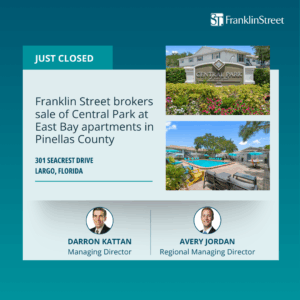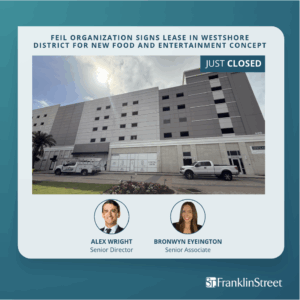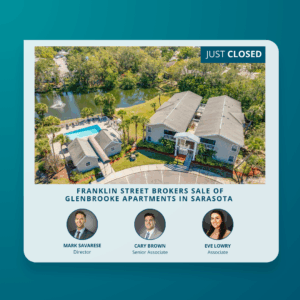The open-air mall Paradise Ventures is building on South Dale Mabry Highway is an anomaly in South Tampa.
The previous owner of the land – just less than five acres, across from iconic Tampa shopping center Britton Plaza – knew his property was an ideal redevelopment play, so he set it up as such, striking short-term deals with existing tenants, said Chuck Ernst vice president of Paradise.
Sites like those are few and far between in the Bay region’s most in-demand commercial corridors, which has created a shortage of storefronts for restaurants and retailers on the move. As the economy picks up – and brings discretionary income along with it – more restaurants and retailers are expanding. But unlike the peak of the real estate boom, those businesses are much more cautious this time around, willing to pay top-dollar for prime locations instead of gambling on second-rate spots.
Real estate experts say the dynamic is pushing the market toward more redevelopment deals like the one Paradise is doing, but in the mean time, it’s stalled growth for those businesses that see opportunity in the Bay region. These types of redevelopment projects create construction and retail jobs and also help the Bay region build density, instead of encouraging sprawling new developments.
“Retailers now are much more conservative, more careful, which is leading to more infill development,” Tom Hand, senior vice president with Redstone Commercial, said at a recent NAIOP Tampa Bay event.
“They want to see homes built and occupied rather than projects announced and dirt being turned.”
‘Space has tightened up’
Brian Bern, a senior director with Franklin Street, said it’s becoming increasingly difficult to find space for his retail clients, no matter where they want to be – from South Tampa to St. Petersburg to Wesley Chapel.
“Space has tightened up,” he said. “There’s more concepts chasing opportunities than there are quality spaces, with the right visibility, right access, right amount of parking.”
But new developments with those qualities come at a price – almost double the traditional retail rents seen in the Bay region. Ernst said rents on redevelopments can range between $30 and $40 per square foot, while traditional retail rents in Tampa were in the mid-teens to low $20s per square foot.
Betting on a new paradigm
While there’s obvious demand for the new construction in the Bay region’s established neighborhoods, the concept is new enough that there are few examples of those types of projects being able to pull in those kinds of rents, and it’s still a tough financing environment for pioneers in any sort of development.
Bern points to Paradise’s deal – still in the works – as well as the retail development at Spruce Street and Westshore Boulevard where the Container Store and a number of restaurants have opened as examples of projects that are paving the way for redevelopment and infill deals.
“It’s still a little too early to tell if that’s going to be a success,” Bern said. “It certainly appears like it’s heading that way.”
Ernst said his firm is seeing tenants willing to spend the money because being in a prime spot allows them to make sales that can justify the higher rents. he said while the deals are more challenging to pull together, Paradise continues to scout similar sites for similar projects.
“It’s where the most tenant demand is, so you’re somewhat insulted,” he said. “Most tenants don’t want to go out in green space chasing residential growth. They’d rather go into the areas that have strong demographics already and are very insulated.”
See the video Post by Tampa Bay Business Journal.
View PDF



